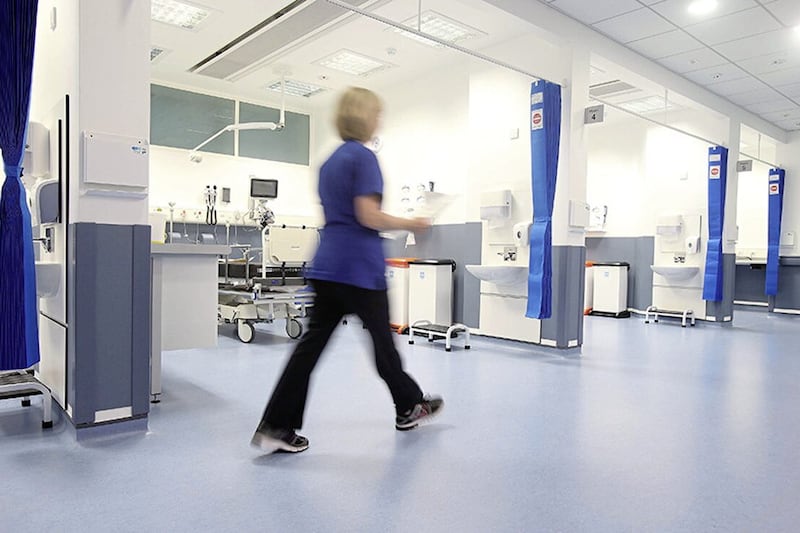PONDER this. People are leaving potatoes on the shelves in food banks because they can’t afford the cost of the energy to cook them.
I had to read that twice when I saw it reported from Iceland supermarket boss Richard Walker last week. I also read it on the same day that inflation reached 6.2 per cent in the 12 months to February – the fastest for 30 years - and on the day that Chancellor Rishi Sunak stood at the despatch box to deliver his Spring Statement.
This was a statement that many hoped would deliver significant support to people who are truly struggling to manage in this cost of living crisis. To me, it all felt a bit muddled. As one front page put it, “thanks for nothing”.
As we know, there was a 5 pence per litre cut to fuel duties and changes to national insurance thresholds. The fuel duty cut takes fuel prices back to what they were a week ago, but a week ago, fuel prices were about 35p a litre higher than they were at Christmas.
While there were moves on national insurance thresholds, the chancellor was adamant that the upcoming increase in national insurance, which will ultimately become the NHS levy, is staying.
While he also announced a reduction in the basic rate of tax for 2024, from 20 per cent to 19 per cent, remember that he has previously frozen the tax free allowance at £12,570 for four years, lifting many thousands of people into paying tax as wages increase.
The Institute for Fiscal Studies ran the numbers and worked out that “bringing together the expected changes in earnings, the reforms to taxes, and energy measures announced in February, a median (middle) earner on £27,500 a year can expect to be about £360 worse off this year than they were last.”
So, few are better off this year than last year. In fact, the Office for Budget Responsibility is assessing that 2022 will deliver the biggest fall in living standards since 1956. Did we expect more from the chancellor?
I wonder if, after the scale of support that the government put into the pandemic response, we now have higher expectations about the role of government than Rishi Sunak’s natural Tory instincts, and his determination to remain within his fiscal rules, allow him to meet.
The chancellor’s endeavours were focussed on earners and drivers, but what about people who neither work, nor have a car? There was a doubling of the Household Support Fund to £1 billion in England (from which Northern Ireland gets an additional £14 million via the Barnett formula) but with many on Universal Credit still reeling from the removal of the £20 a week uplift, the doubling of this fund will do little to make a significant impact on people’s cost of living challenges.
With inflation running at 6.2 per cent and benefits (including the state pension) due to increase by 3.1 per cent, the chancellor’s decision not to do anything immediate here will deliver a real term cut in income.
Pensioners on the full state pension will be about £290 a year worse off if inflation stays at 6.2 per cent. For most, the £289 a year increase will not cover the rising cost of energy, let alone other price rises.
The standard allowance for Universal Credit will rise by around £10 a month for a single person over 25. So that will mean a real term cut of about £10 a month when inflation has its way with it.
When prices are rising at this pace in essential spending – ie areas such as energy, transport and food - we as consumers react either by spending less on ‘discretionary’ spending such as leisure, culture etc, borrowing more to maintain spending, or we get a pay rise.
Those are not easy options.
While the labour market is strong, and apparently one-in-four people are actively seeking a higher paid job to cover higher costs, this is not a quick solution, and obviously isn’t an option for many.
While savings can buffer some of the pain, and a lot has been written about the increased savings built up during the pandemic, we cannot forget that about 40 per cent of people don’t have enough saved to buffer themselves for a month in the absence of income, and 15 per cent of people in the UK don’t have any savings.
That means debt levels could build. This is a concern. Research by the Financial Conduct Authority (FCA) suggests that people across Northern Ireland have the highest level of unsecured indebtedness in the UK. They estimate that adults with debts in Northern Ireland owe an average of £10,730 (excluding their mortgage), nearly £1,000 more than the average debt for adults with debts across the UK.
These figures are from before the current cost of living increases and so, when coupled with the fact that the FCA’s research also found that households that around 10 per cent of people in Northern Ireland are in ‘difficulty’ and that more than half of adults in Northern Ireland have characteristics of being ‘potentially vulnerable’, there does not appear to be a lot of scope to ‘ride out’ this inflation phase.
There is a vulnerability in our economy that is being exposed by dramatic increases in essential items. The chancellor’s Spring Statement hasn’t provided the relief many had hoped.
Andrew Webb is chief economist at Grant Thornton









